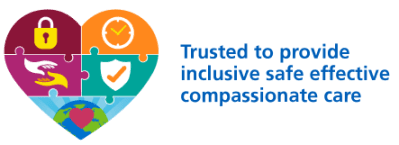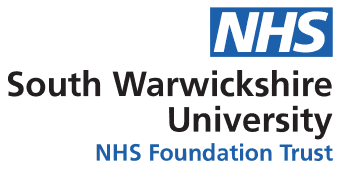We offer inpatient postnatal care in both the Bluebell Birth Centre and on Swan Ward. Following the birth of your baby, you will be made comfortable and you will meet the team who will co-ordinate the care of you both.
When will you go home?
We support women and birthing people and their new babies to return home as soon as possible. When you go home will depend on your individual clinical needs and those of your baby, and when you feel ready to do so.
Vaginal birth
In the event of an uncomplicated birth, you will be able to go home from about six hours after you’ve given birth. The average length of stay in the unit is one day following a vaginal birth and one to two days after an instrumental vaginal delivery.
Caesarean section
You can expect to go home one to two days after your caesarean section providing all is well. If you have an elective/planned caesarean section, the recovery care aims to have you fit and well enough to go home the day after.
If you or your baby require a longer stay due to any additional care or arising complications, the postnatal ward midwife or doctor who is involved in your care will discuss this with you.
Before you leave
We will:
- Support you to feed and care for your baby
- Complete a postnatal assessment for you to ensure you are recovering well and are ready to leave
- Complete a full, detailed physical check of your baby, and arrange a hearing screening test
- Give you information, details of follow-up visits from your midwifery team in the community and any medication you may need
- Give you a wave goodbye (or a hug!) and check if you have any more questions before you go
You will:
- Need to ensure you know how you are travelling home with your baby, including bringing an appropriate car seat if taking your baby home in a vehicle
If you have your baby at home and there are no complications you will stay at home. Your midwife will make you comfortable, examine your baby, complete documentation and give you emergency numbers to call before leaving. A midwife will return to visit you the next day.
The next day your baby will have a more detailed check, either at home or you may be asked to bring your baby to the Bluebell Birth Centre. You will be sent an appointment for your baby to have a hearing screening test as an outpatient appointment at Warwick Hospital.
Transitional care
Transitional care is the extra support given to babies who are well enough to be cared for at the bedside with their parents, but who need a little extra assistance beyond the usual postnatal care. By looking after babies in this way it builds the relationship between parent and child and reduces admissions to the neonatal unit.
Transitional care is delivered on Swan Ward at Warwick Hospital. Your baby may require transitional care directly after they’re born or following some time on the SCBU. There are several reasons why your baby may need transitional care, for example:
- Your baby is born five to seven weeks early
- Your baby is small
- Your baby needs help keeping warm or with feeding
- Your baby needs phototherapy (light treatment) for jaundice
- Your baby needs treatment with antibiotics
If your baby requires transitional care, SWFT has a leaflet containing further information:
SWH 06238 Maternity transitional care unit.
SCBU
Sometimes babies are born requiring specialist care and attention. Our SCBU cares for babies born unwell or premature who may need extra support with breathing, feeding and keeping warm.
Specialist nurses and doctors are available to answer any questions you may have whilst your baby receives the treatment they need. During this time parental involvement in decision making and care is fully encouraged and supported.
For further information visit: NHS Special Care for Unwell or Premature Babies
If your baby is being cared for on SCBU, SWFT has a leaflet containing lots of useful information:
SWH 00537 Special Care Baby Unit (SCBU).
You can also view the interactive Neonatal Unit tour which has been designed to help you understand what to expect before you arrive on the unit. The 3D tour will enable you to explore the unit, get to know your way around, and includes useful information such as:
- Directions and facilities
- Commonly used equipment
- Educational videos
- Support available
- Useful website links
Interactive neonatal unit tour resources:
If your baby needs a higher level of medical and nursing support, they might be transferred to a local neonatal unit (level two unit) or a neonatal intensive care unit (level three unit).
Neonatal Care Pay and Leave
You and your partner may be able to get paid time off work if your newborn baby is premature or sick and needs neonatal care.
‘Neonatal care’ is the name given to care for newborn babies which starts in the first 28 days after birth. This may be for:
- hospital care
- medical care after leaving hospital - this must be under a consultant and include ongoing visits or checks arranged by the hospital where your baby was treated
- palliative or end of life care
You may be able to get:
- Neonatal Care Leave
- Statutory Neonatal Care Pay
You can get one week’s leave for every 7 full and continuous days your baby is in neonatal care, for up to 12 weeks.
You get Neonatal Care Pay and Leave in addition to other parental pay and leave entitlements. If you’re already on maternity leave or adoption leave, Neonatal Care Leave must be taken at the end of that entitlement.
For more information click on the following links:


